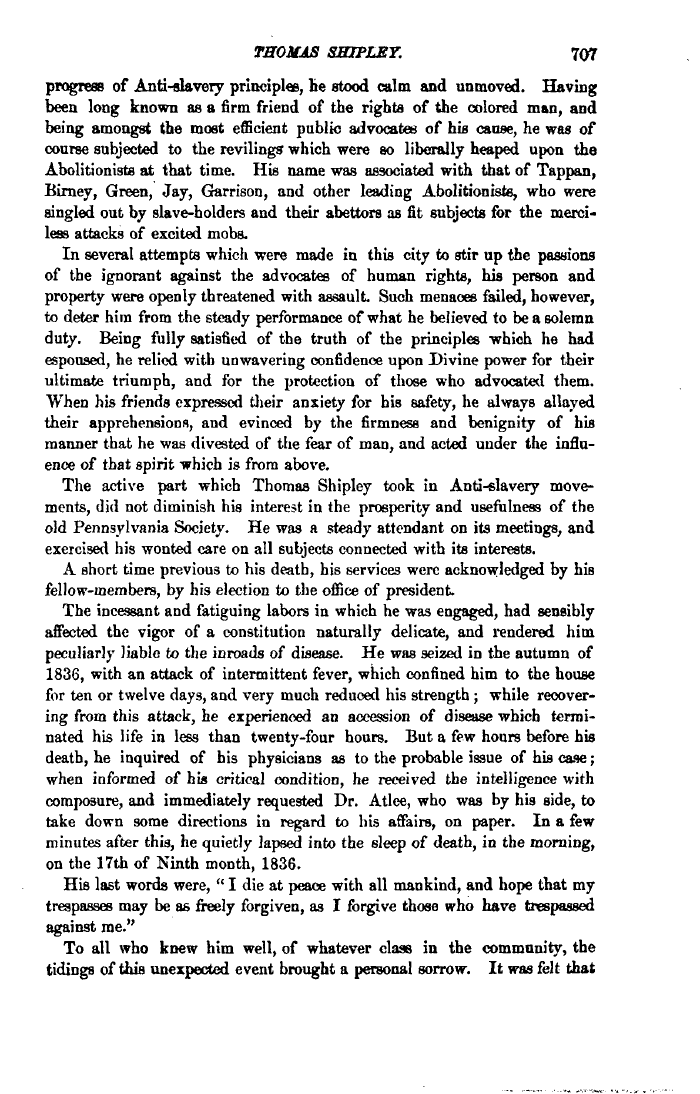 |
||||
 |
||||
| THOMAS smPLJST. 707 progress of Anti-slavery principles, lie stood calm and unmoved. Having been long known as a firm friend of the rights of the colored man, and being amongst the most efficient public advocates of hie cause, he was of course subjected to the revilings which were so liberally heaped upon the Abolitionists at that time. His name was associated with that of Tappan, Birney, Green, Jay, Garrison, and other leading Abolitionists, who were singled out by slave-holders and their abettors as fit subjects for the merciless attacks of excited mobs. In several attempts which were made in this city to stir up the passions of the ignorant against the advocates of human rights, his person and property were openly threatened with assault Such menaces failed, however, to deter him from the steady performance of what he believed to be a solemn duty. Being fully satisfied of the truth of the principles •which he had espoused, he relied with unwavering confidence upon Divine power for their ultimate triumph, and for the protection of those who advocated them. When his friends expressed their anxiety for his safety, he always allayed their apprehensions, and evinced by the firmness and benignity of his manner that he was divested of the fear of man, and acted under the influence of that spirit which is from above. The active part which Thomas Shipley took in Anti-slavery movements, did not diminish his interest in the prosperity and usefulness of the old Pennsylvania Society. He was a steady attendant on its meetings, and exercised his wonted care on all subjects connected with ite interests. A short time previous to his death, his services were acknowledged by his fellow-members, by his election to the office of president The incessant and fatiguing labors in which he was engaged, had sensibly affected the vigor of a constitution naturally delicate, and rendered him peculiarly liable to the inroads of disease. He was seized io the autumn of 1836, with an attack of intermittent fever, which confined him to the house for ten or twelve days, and very much reduced his strength; while recovering from this attack, he experienced an accession of disease which terminated his life in less than twenty-four hours. But a few hours before his death, he inquired of his physicians as to the probable issue of his case; when informed of his critical condition, he received the intelligence with composure, and immediately requested Dr. Atlee, who was by his side, to take down some directions in regard to his affaire, on paper. In a few minutes after this, he quietly lapsed into the sleep of death, in the morning, on the 17th of Ninth month, 1836. His last words were, " I die at peace with all mankind, and hope that my trespasses may be as freely forgiven, as I forgive those who have trespassed against me." To all who knew him well, of whatever class in the community, the tidings of this unexpected event brought a personal sorrow. It was felt that |